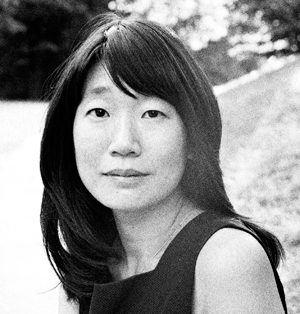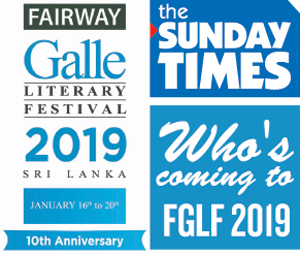Madeleine Thien:Writing about her mixed heritage
View(s): Madeleine Thien, though she was born in Canada with English as her mother tongue, was heir to several colourful cultures. Her mother was a Cantonese speaker from Hong Kong while her father is Hakka, ethnic Chinese but born in a part of Malaysia that was once the British protectorate of north Borneo. The couple would meet in Australia and later emigrate to Vancouver.
Madeleine Thien, though she was born in Canada with English as her mother tongue, was heir to several colourful cultures. Her mother was a Cantonese speaker from Hong Kong while her father is Hakka, ethnic Chinese but born in a part of Malaysia that was once the British protectorate of north Borneo. The couple would meet in Australia and later emigrate to Vancouver.Madeleine grew up among books and had read through the entire children’s section of the public library before turning 12. For her, enrolling for an MFA in creative writing from the University of British Columbia proved to be a great life-changing moment .
Madeleine’s first book of short stories, Simple Recipes, was heralded by Nobel prize winning Alice Munro as “the debut of a splendid writer.” The stories explore the subtleties of love, family, history, and self. The book won the City of Vancouver Book Award, the VanCity Book Prize and the Ethel Wilson Fiction Prize.
Certainty was her debut novel, published in 2002, through which she wanted to tell the story of her father’s Malaysian background. The central character is a documentary producer searching for the truth of her father’s experience in a country at the time occupied by the Japanese.
Her third book was Dogs at the Perimeter, which is set against the horrors of Pol Pot’s Cambodia- a period of history from which few had emerged alive to tell the tale. Research involved travelling around the country for months. It is the story of Janie, who as a child experiences the terrible violence carried out by the Khmer Rouge and loses everything she holds dear. Fast forwarding to three decades later, we find Janie abandoning her husband and son and taking refuge in the home of her friend, the scientist Hiroji Matsui. Janie and Hiroji find solace in their shared grief and pain—until Hiroji’s disappearance opens old wounds and Janie finds that she must struggle to find grace in a world overshadowed by the sorrows of her past.
 It is with her 2016 novel, Do Not Say We Have Nothing, that Madeleine won the most recognition. It won her the Governor General’s Award for English-language fiction and the 2016 Scotiabank Giller Prize, while getting shortlisted for the 2016 Man Booker Prize, the 2017 Baileys Women’s Prize for Fiction, and the 2017 Rathbones Folio Prize. In advance of publication in the United States, it was named to the fiction longlist for the Andrew Carnegie Medals for Excellence in Fiction and Nonfiction.
It is with her 2016 novel, Do Not Say We Have Nothing, that Madeleine won the most recognition. It won her the Governor General’s Award for English-language fiction and the 2016 Scotiabank Giller Prize, while getting shortlisted for the 2016 Man Booker Prize, the 2017 Baileys Women’s Prize for Fiction, and the 2017 Rathbones Folio Prize. In advance of publication in the United States, it was named to the fiction longlist for the Andrew Carnegie Medals for Excellence in Fiction and Nonfiction.
It is the story of Marie, an 11-year-old living with her mother in Vancouver. It deals with two generations: those who lived through Mao’s Cultural Revolution and their children, who became the students protesting in Tiananmen Square. Marie together with Ai-Ming strive to piece together the lives of their two fathers. Their quest will unveil how Kai, her enigmatic father, a talented pianist, and Ai-Ming’s father, the shy and brilliant composer, Sparrow, along with the violin prodigy Zhuli, were forced to reimagine their artistic and private selves during China’s political campaigns and how their fates reverberate through the years with lasting consequences.
Madeleine’s books have been translated into 25 languages and her essays and stories have appeared in the New York Times, the Guardian, Brick, Frieze, Granta and elsewhere. She lives in Montreal and New York, and is a professor of English at Brooklyn College.


